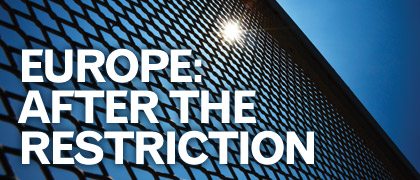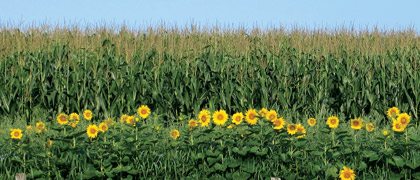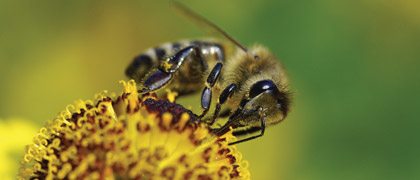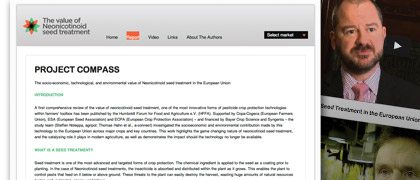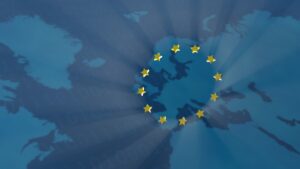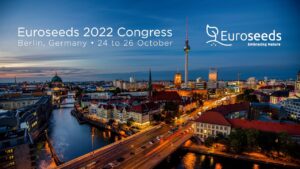The decision by the European Commission to restrict the use of neonicotinoid-treated seed will have many short- and long-term effects—and not just in agriculture. Some industry experts claim the cost to the European economy could eventually number in the billions of Euros.
In a few short weeks, the controversial restriction on neonicotinoid products—including treated seed—goes into effect across Europe. Intended to help prop up diminishing honey bee populations, the move comes after many months of impassioned political debate within European Union nations and the European Commission over the efficacy of the two-year restriction.
The restrictions on treated seed containing three neonicotinoid pesticides—clothianidin, imidacloprid and thiametoxam—come into effect Dec. 1, although the true impact on bee health won’t be known for some time. But industry experts assert the effects on agriculture and the economy will be felt immediately, and the overall cost of the EC-imposed restriction will be staggering, with higher food prices, thousands of lost jobs and overall economic losses likely numbering in the billions of Euros.
“The European Commission’s decision is a setback for European agriculture,” says Martin Gruss, global head of SeedGrowth products for Bayer CropScience, a major player in the seed treatment industry. “Restricting the use of imidacloprid and clothianidin in crops such as maize, oilseed rape, cotton and sunflowers will put at risk farmers’ ability to tackle the destructive pests that can severely damage crops and restrict their capability to grow abundant, high-quality, affordable food in Europe.”
Some industry experts fear the European restriction on neonicotinoid-treated seed could lead to a huge drop in grower margins.
Project Compass Assesses Benefits
Gruss refers to the Project Compass research report published by the Humboldt Forum for Food and Agriculture in January of this year, which he says underscores the importance of neonicotinoid seed treatments to the competitiveness of the agri-food chain. The study, authored by Thomas Hahn and Steffen Noleppa, concludes neonicotinoid technology has provided substantial benefits to the EU—and that removing this technology comes at a considerable cost.
“This study is the first comprehensive review of the socio-economic and environmental contribution of neonicotinoid seed enhancement. The authors estimate that it contributes more than €2 billion annually to commodity crop revenues and reduces production costs by €1 billion across the EU. They also conclude that without their use, Europe could face economic losses of up to €17 billion over a five-year period,” says Gruss. “In the long term, this would be accompanied by a significant increase in pest pressure. Average grower incomes could decrease by five percent and 50,000 full-time farm jobs could be impacted in the EU. Unfortunately, the European Commission refused to undertake an impact assessment of its own, a bizarre decision when you consider what the Humboldt study discovered.”
Gruss says a common denominator in the report “is a loss in crop yield and, consequently, producer income. To give you some numbers: Oil seed rape yield losses could amount to as much as 15 percent, leading to a drop in grower margins of up to 60 percent. A possible plummet in corn seed yields in France, Hungary and Romania—the three main corn seed producers in Europe—could affect the safety of the corn seed supply throughout Europe. Also processors of the commodities and in-line consumers will be impacted by increasing prices of the replacing imported commodities,” he says.
“The restriction of neonicotinoids could lead to the use of alternative products, most with a less favorable environmental, human and agricultural profile. Such products might be less safe, more land will be needed for intensive farming to meet demand for crops, and more crop production will shift overseas, requiring carbon-intensive storage and transit to reach European markets. In the long term, another loss of an important substance class may significantly increase the risk of resistance development.”
Garlich von Essen, head of the European Seed Association, agrees with the assessment of the Project Compass report, although he feels economic losses from the current neonicotinoid restriction will likely not be as severe as the study indicates since there are some exceptions, such as winter cereal. But because the [restriction] applies to many major crops in Europe, “it’s still a pretty staggering figure,” he says.
As Dec. 1 nears, von Essen maintains it’s become increasingly clear that the EC decision “has been taken quite hastily and the consequences, particularly the practicality of implementation, have not been very well thought through.” For example, it’s still unclear just what is to be done with the vast amount of neonicotinoid-treated seed stock still in the hands of European farmers or sitting on shelves at agricultural cooperatives, local distributors and seed companies, he says. Von Essen adds seed shortages could be another consequence of the restriction.
According to Gruss, Bayer CropScience remains convinced that neonicotinoids are safe for bees when used responsibly and correctly according to the label instructions. “Current scientific evidence has overwhelmingly concluded that the increased mortality of bees, as it’s been observed in some parts of the world, is largely due to a complex set of factors,” he says.
Gruss condemned the EC for choosing to ignore the long track record of the safe use of neonicotinoids as well as significant stewardship improvements for seed treatment that have been implemented in recent years. “Our primary concern is that restricting the use of neonicotinoids does nothing to address the key bee health issues, namely the Varroa mite and habitat loss, and that the EC decision has therefore distracted attention from focusing on addressing the factors which could really improve bee health.”
A hasty decision to restrict the use of neonicotinoid-treated seed was blindly adopted to help prop up declining honey bee populations across Europe.
Prospects for Reintroducing Neonicotinoids
The EC did leave the door open for the eventual reintroduction of the banned pesticides when announcing its decision earlier this year. As stated on the EC’s website: “As soon as new information is available, and at the latest within two years, the Commission will review the conditions of approval of the three neonicotinoids to take into account relevant scientific and technical developments.”
However, von Essen believes statements such as this contribute to the “myth” that it would be possible to quickly reintroduce neonicotinoids to the European market, if the risk to bees is deemed to be negligible. Once the restriction expires, he says, the products would need to be reevaluated, then either rejected or accepted and subsequently authorized not by the EC, but by regulatory authorities in EU member states—a process that could take years. In von Essen’s words: “We’d be starting at zero.”
Von Essen believes the complex political/regulatory systems and growing anti-technology sentiments within Europe will continue to hinder usage of pesticide-treated seed and other crop protection products. He cites the EC’s decision this past summer to impose a similar two-year restriction on fipronil, a BASF insecticide, as the latest example.
“The political framework under which we all—and that means the crop protection industries, seed treatment companies, the seed companies, but also farmers themselves—operate in Europe is and will continue to be a very difficult one. There is a lot of pressure for more and more regulatory oversight … in particular [of] the agricultural input industries,” says von Essen.
“I think it might take some time until the Europeans understand that they’re pretty much alone with the way that they handle things. If I look at the discussions about agriculture in South America, in the U.S., in Canada … generally there is understanding that we need to produce more sustainably, we don’t want to cut down rainforests, we all want to take care of carbon dioxide emissions and so forth. Most of the rest of the world sees agricultural technologies in the wider sense … as helpful tools in this process,” he says.
“Whereas [many] Europeans so far still think that less technology and less modernization and going … back to a low input agriculture … is some form of solution,” von Essen adds. This, he says, is “another myth that is still persistent in Europe.”
The Project Compass report on the value of neonicotinoid seed treatment in Europe can be found at neonicreport.com


